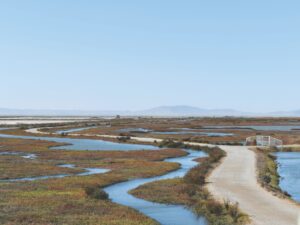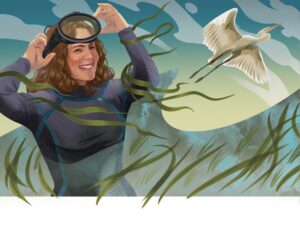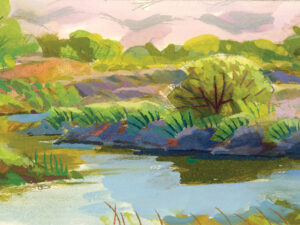Biologists, physicists, geologists — you name it, scientists of all disciplines are converging to make sense of arguably the most troubling scientific dilemma facing the planet today: climate change. Mathematicians, too, are jumping in to help sort out the underlying equations that make up the Earth’s complex, and rapidly changing climate system.
What are the numbers behind California’s anticipated longer and hotter dry seasons and declining snowpack? And what’s the basis for such predictions?
On Monday night, a group of Bay Area mathematics institutes are hosting a public lecture by applied mathematician Emily Schuckburgh on “Climate Disruption: What Math and Science Have to Say” at the Palace of Fine Arts in San Francisco. Schuckburgh, a climate scientist at the British Antarctic Survey and faculty at the University of Cambridge, has named 2017 as the date in which we have to begin decreasing global greenhouse gas emissions to avoid “dangerous climate change,” or that above 2 degrees Celsius.
Shuckburgh will explain the nature of climate change data and how scientists turn this data into predictions.
Brian Conrey, executive director of the American Institute of Mathematics in Palo Alto, Calif., said he wants to show the public what math can do for climate science, and he wants mathematicians to feel compelled to take on climate change research.
“Math is relevant and can play a critical role in studying these complex issues. Underlying a lot of them are math problems, and some sophisticated math,” said Conrey. “Mathematicians can look at it from a bigger, slightly more abstract, systems point of view … and find a realistic way they can be modeled on computers.”
The talk is part of an international lecture series supported by the Simons Foundation in collaboration with Mathematics of Planet Earth, of which the American Institute of Mathematics participates as well as co-host Mathematical Sciences Research Institute, based in Berkeley.
Schuckburgh’s talk begins at 7:30 pm on Monday, March 4 at the Palace of Fine Arts in San Francisco. Tickets can be purchased online.





